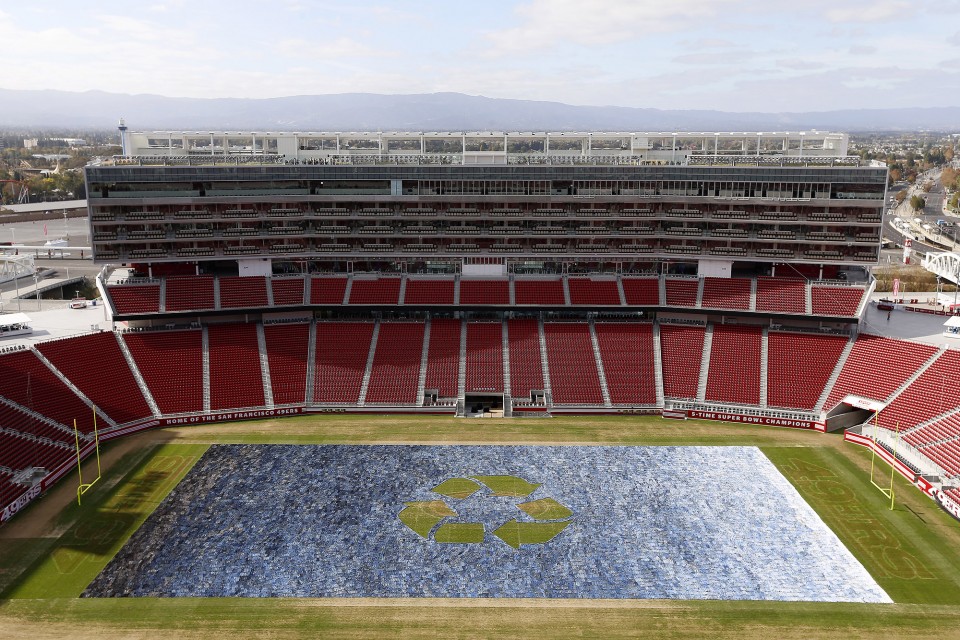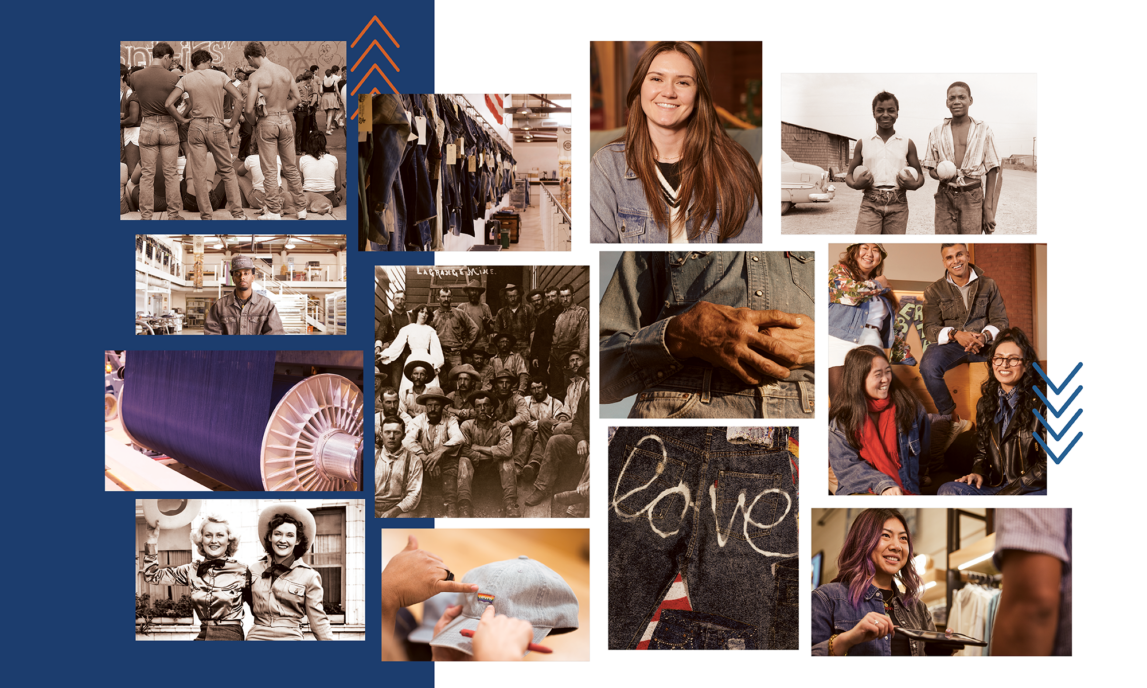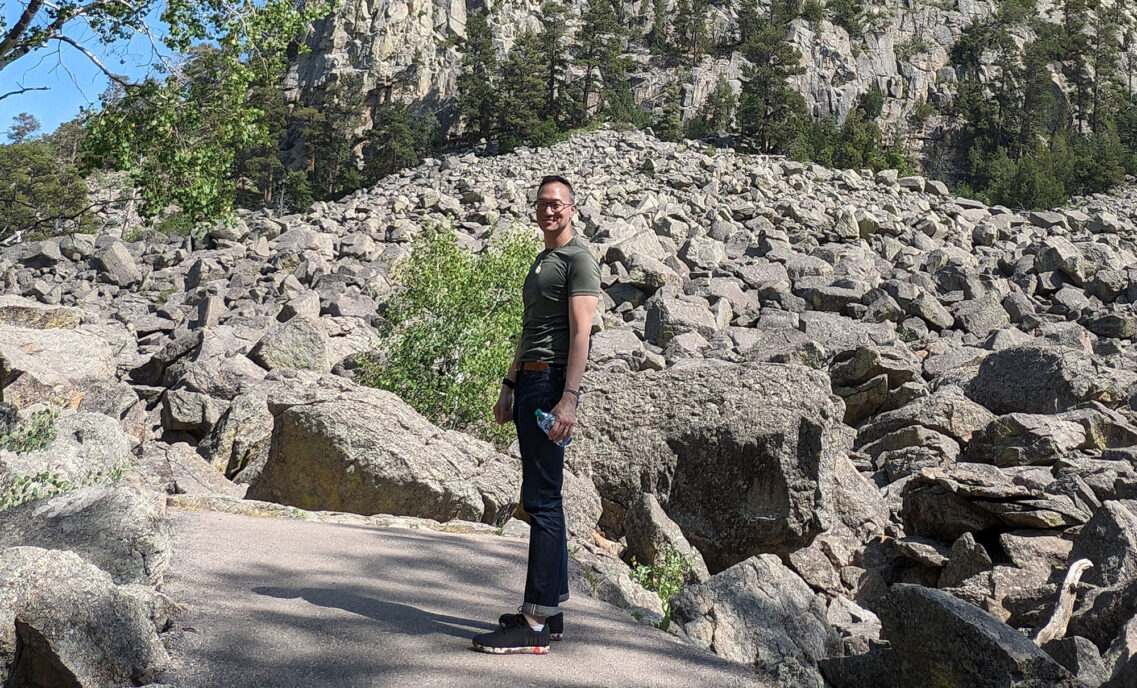Last month, LS&Co. held an exciting project in partnership with Goodwill. The Field of Jeans was a two-week drive that encouraged Levi’s Stadium attendees to bring in and donate their old clothing. The donations were then turned into a larger-than-life art installation, orchestrated by the talented artist Hannah Sitzer for an incredible portrayal of the pronounced effect recycling unwanted clothing can have on the environment.
The drive was a big success. More than 18,850 pairs of jeans were collected for the art installation—and 12 tons of clothing overall—resulting in a terrific case study of what can happen when consumers and companies work together to make a positive impact on the environment. Today, Michael Kobori, Vice President of Sustainability here at LS&Co., sounds off on the entire campaign and how it was born from a simple concept that we’re proud to champion company-wide: consumer education.
“Consumer behavior can make a significant impact on the ways our products affect the environment. We don’t view sustainability as an exclusively in-house job—we want to put a serious dent in the 26 billion pounds of textiles that end up in landfills each year in the United States.
We’ve learned that the best way to achieve that is by doing what we can at a company level, while promoting sustainable behavior in the world our clothing inhabits. If we truly want to make a difference, we need to consider what our fans do with our products even after they no longer need them.”
Through a multi-pronged approach to educating consumers, LS&Co. is hoping to spread our sustainability aims and to help make sure our products are reused and recycled, even after they leave our stores. Michael Kobori gives an insightful look into how consumer education can help companies everywhere achieve their corporate sustainability aims more effectively and efficiently. And he gives a compelling case on why, in 2014, consumer education in the sustainability space has never been more vital or necessary.
Head over to LinkedIn for the entire piece.







